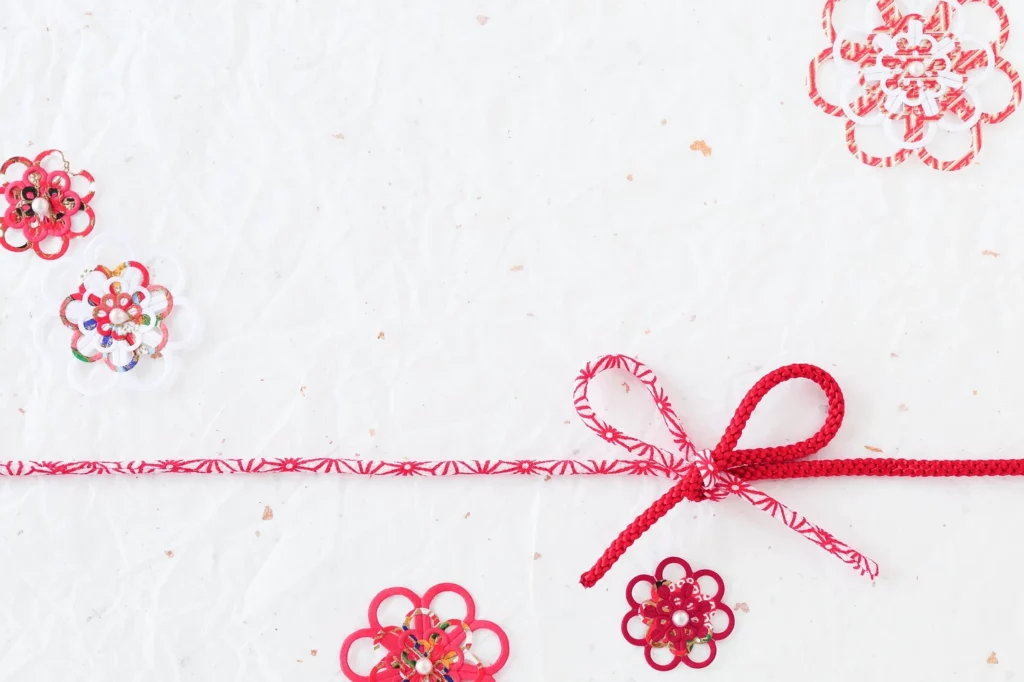A little anecdote to begin
About ten years ago, I gave a book as a Christmas gift to a friend, and she was thrilled. I was too, because it was my favourite book and I was sure she would love it just as much as I did.
A few months later, I went to her place and I saw this book...in the donation bag. I was hurt by her I was hurt by her rejection of my gift (and therefore me). I was so ashamed that I never spoke to her about it. Eventually, I even convinced myself that she hadn't liked the book because the translation was bad.
It's only after all this time, and a lot of tidying up, that I can suspect another explanation which, knowing my friend, is more likely. The irony is that now this has become my way of approaching gifts and I am faced with incomprehension from some of those around me.
So, what is a gift?
In Japan, there are several words for “gift.” For example, プレゼント (purezento) is a gift that one gives to a loved one during a celebration such as Christmas, お土産 (omiyage) is a travel souvenir, and one brings a 手土産 (temiyage) to one's host when we're invited.
There are often meanings associated with the objects we give, but at its core, a gift is a message. It is used to convey an emotion — love, gratitude, esteem, etc. — from one person to another. Once the gift is received, the message is transmitted and it becomes an object like any other. So, if it inspires you with tokimeki, keep it and make a place for it in your home. Otherwise, let go it with gratitude for the mission it accomplished.
In this exchange,omoiyari (sincere consideration for the other person) plays a key role. The essence of a gift resides in theomoiyari that accompanies it. This disinterested consideration shows that we have taken the time to think about the other person, beyond the object that we give.
Omoiyari: The art of giving with consideration and empathy
The word " omoiyari " comes from the Japanese verb " omo " (思う), which means "to think" or "to feel", and the suffix " yari (遣り), from " yaru (遣る), which means "to do" or "to give". Therefore, " omoiyari " can literally be translated as "act with thought" or "act with consideration", reflecting an action guided by empathy and thoughtfulness.
In the context of gifting, this refers not only to the act of giving a gift, but also to the careful reflection on the needs, wants, and feelings of the other person.omoiyari goes beyond the gifted item; it entails understanding the true intention behind the gesture, being mindful about what will bring joy to the other person, while respecting their choices and their emotions, even if this includes the possibility of discarding the gift.
Theomoiyari, at the heart of a gift
Based on my observations, in certain cultures,omoiyari can sometimes be replaced by the ego of the giver, where the value of the gift is measured by its size or its cost. But the real value of a gift isn't monetary; it's in the attention and intention that accompany it. In this sense, the gift becomes a representation of theomoiyari.
Giving a git that is modest but carefully-selected or handmade with love and intended for the receiver show a deep omoiyari . On the contrary, a showy but impersonal present can lack this essential quality. At the end of the day, it's theomoiyari that gives a gift its true value, separate from its material worth.
Give the freedom to let go:omoiyari in the act of giving
In the practice of omoiyari, which means “empathy” or “caring for another,” offering someone sincere permission to part with a gift is a deeply respectful act. Rather than placing expectations on oneself about what the other should do with the gift, one recognises that their needs, feelings, and space are equally important. Allowing a person to let go of an object, whether lovingly given or not, without guilt, reflects a true understanding of their desires and well-being. This approach not only fosters inner peace in the recipient, but also strengthens the authentic bond between individuals, based on mutual respect.
Learning to transfer gifts
Even with the best of intentions, a gift may not find its place in our lives. This is where the art of graceful transfer begins. Saying goodbye to a gift is acknowledging that it has fulfilled its mission. It does not mean a rejection of the message it carried, but rather an acknowledgment that this message is now a part of you.
Transferring a gift can be an act ofomoiyari in itself. By finding a new home where it will bring joy, you are extending its life and meaning. Take the time to thank the gift before you let it go, and share its story if it will bring even more value to its next owner.
This approach helps reduce feelings of guilt associated with parting with a gift, while honoring the relationship it originally symbolised.
The life cycle of a gift and its environmental impact
Let’s not forget that a gift is not just a message between two people, it also has a material life. Thinking about its life cycle, from its production to its end, is a way to extend theomoiyari beyond the act of giving. By choosing sustainable or intangible gifts (like experiences), we can reduce our ecological footprint while bringing joy.
Think about items that will last or alternatives that don’t produce waste: an invitation to a cultural event, a class, or even a shared moment like a dinner or a walk. These choices are not only respectful of the environment, they also demonstrate a sincere attention to the person and the world around us.
Giving and receiving gifts with grace
To summarise, here are some suggestions that might be useful to you in the coming days:
- Give with omoiyari : Take the time to think about the other person, their preferences, needs, and desires, and choose a gift that would please them. Sometimes, despite social conventions, the best gift may be nothing at all or money.omoiyari, or the consideration you bring in this gesture, is in itself a precious gift. It is an act that shows that you genuinely care about the other person, that you have taken into account their tastes and preferences. It goes far beyond the simple material exchange, it is a gesture that strengthens the bond and shows your sincere care. The most important thing is to act in the interest of the other person, by offering them what you believe will have the most value for them, rather than simply following social conventions or expectations.
- Give for the joy of giving: Give without expectation, without seeking to receive in return. This will allow you to reduce the pressure that could spoil the spontaneity and purity of the gesture. The important thing is to savor the act of giving for what it is: a way to please, to share a moment of joy. If you have the opportunity to deliver the gift in person, take the opportunity to spend a moment together. This shared moment, beyond the gift itself, is a real treasure and a gift in itself.
- Receive consciously: Pay attention to the message behind the gift you receive. It is not just an object, but a symbol of the thought and intention of the giver. When you receive, take the time to appreciate the generosity, consideration, and thought behind it. This can transform a gift into a true moment of connection and gratitude.
- Receive with gratitude: When you receive a gift, sincerely thank the person who has given it to you, not just for the object, for also for the message and for their omoiyari. Express your gratitude for the thoughtfulness they gave to this gesture, and for the empathy they put into their choice. This gratitude strengthens the relationship and values the intention behind the gift. Thanking the object for having been the means of transmitting this omoiyari, also makes it easier to detach yourself if, after consideration, you decide that the object doesn't spark tokimeki. You can let go of the object with calm, appreciating the intention and emotions that accompanied it, and without guilt.
- Communicate your preferences tokimeki beforehand: Don’t hesitate to share your desires, preferences, and gift ideas. This not only helps avoid misunderstandings, but also increases the chances of receiving a gift that will truly bring you joy. Clear and caring communication around gifts can make the exchange an even more enriching experience for everyone.
Giving and receiving gifts with grade elevates the moment into an art. Whenomoiyari is the common thread, this exchange becomes much more than a simple transaction: it transforms into a true elevation of human relations, strengthening ties and cultivating moments of authentic connection. It is in this mutual attention that lies all the beauty of the gesture.

